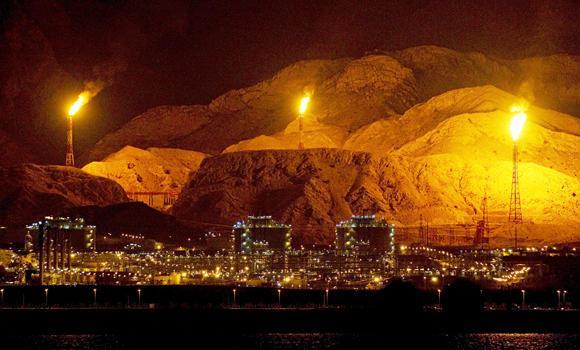
Oil up 7% as support grows for Doha deal
Global oil prices rose as much 7 percent on Wednesday, rebounding further from their lowest levels in a dozen years, after Iran voiced support for a Russia-Saudi-led move to freeze production in an oversupplied market.
Iranian Oil Minister Bijan Zanganeh met counterparts from Venezuela, Iraq and Qatar in Tehran for over two hours on Wednesday, saying the proposed production “ceiling” should be the first step toward stabilizing the market.
Zanganeh, quoted by Tehran’s Shana news agency, did not explicitly say that Iran would keep its own output at January’s levels.
But his tacit endorsement for what would be the first OPEC-non OPEC price support pact in 15 years spurred oil traders into pushing global benchmark Brent up more than $2 a barrel.
“I’m pricing between $35 and $45 for Brent by summer, as we still have a daily surplus of up to 1.7 million barrels of oil to contend with,” said Phil Davis, an independent crude trader at PSW Investments.
“But I don’t see the panic move down below $30 happening again,” Davis said. “That’s just untenable.”
Brent was up $2.32, or 7.3 percent, at $34.50 a barrel by 1645 GMT. US crude rose by $1.90, or 6.4 percent, to $30.94 a barrel.
Crude prices have fallen from highs above $100 a barrel with little resistance for most of the past 20 months.
Also Wednesday, Standard & Poor’s ratings agency said that the decline in oil prices “will have a marked and lasting impact on Saudi Arabia’s fiscal and economic indicators given its high dependence on oil”.
Standard & Poor’s cut its rating on Saudi Arabia’s long-term foreign and local currency sovereign credit to ‘A minus/A-2’ from ‘A plus/A-1,’ citing a fall in oil prices since the rating agency’s last review of the country in October.
After falling to 2003 lows beneath $30 last week, crude has been rising, surging 12 percent on Friday alone.
Under the proposal to freeze production, major producers including Russia and Saudi Arabia would restrict output at January levels.
An Iranian official earlier said the fourth largest producer in OPEC would continue increasing its output until it reached levels achieved before the 2012 trade sanctions.
The pact to freeze output will make little difference to this year’s overall supply-demand balance in oil.
“The market needs a cut, not a production freeze,” PVM analyst David Hufton said.
Investors are also eyeing US oil inventory data due on Wednesday and Thursday for further price direction.
A Reuters poll of analysts showed US crude stockpiles likely rose 3.9 million barrels last week.

























